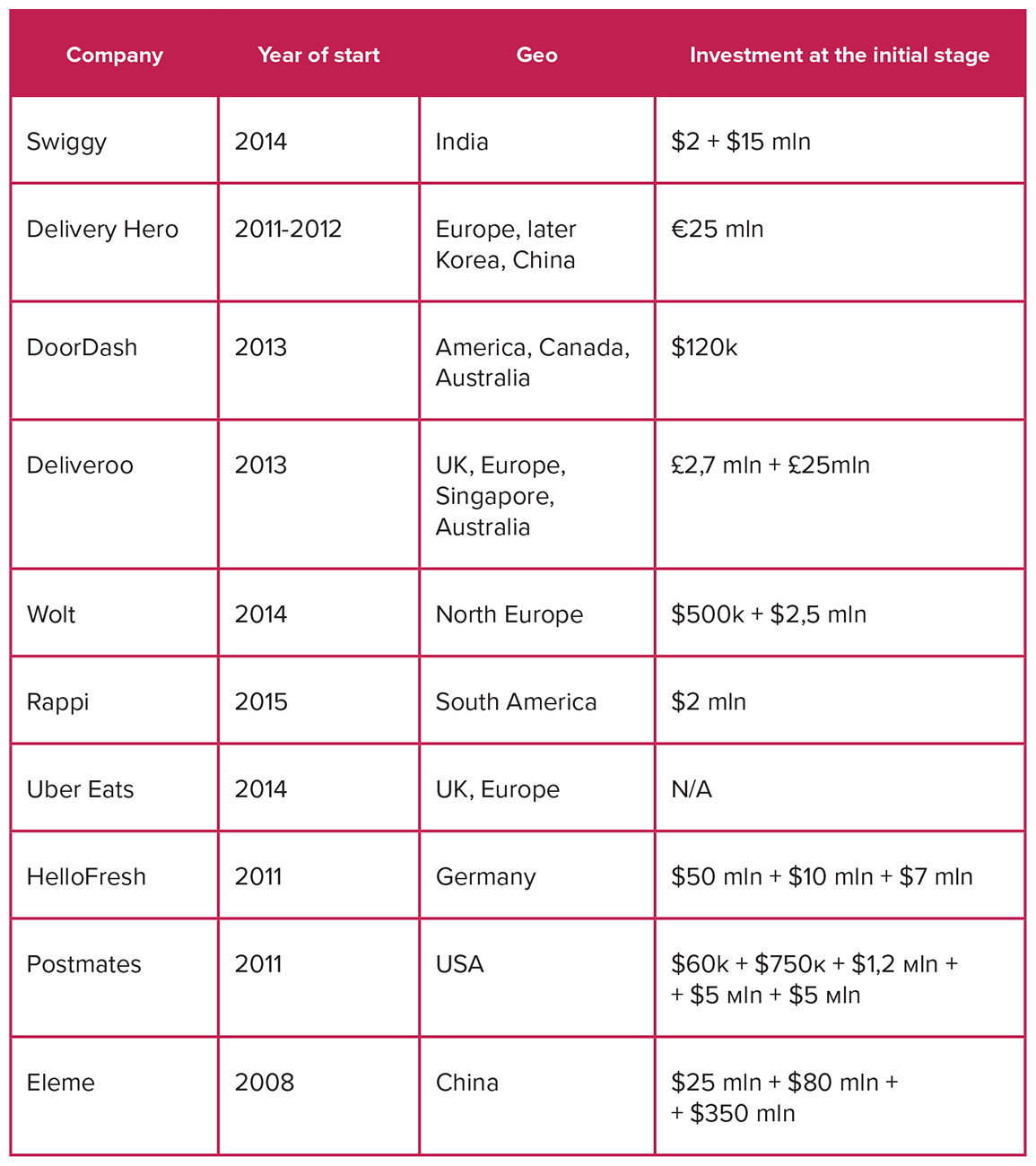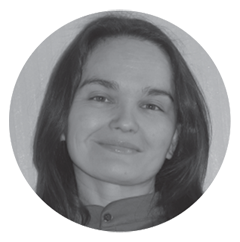
Полная версия
Management practices of Russian companies. Vol.2
Each model had advantages and drawbacks. The mass market or lunch box delivery model was attractive due to its stable demand, predictable frequency and large orders for couriers. A courier would drive 5–6 lunch boxes to an office from the same catering company. Given that the choice of companies for lunch box delivery was not huge, it could be possible to take a large portion of this market. A courier would have been assigned to a particular company. However, the delivery would only be needed at certain times of the day, on weekdays. The rest of the time would be deadtime for the delivery guys, which would limit their income potential.
Delivery from the premium market restaurants were only limited by the working hours of a restaurant, which on average would mean from 11 am to 11 pm. Delivery cost could be easily included in the cost of order. In this model, a courier only had to deliver one order to one client from one restaurant. The downside of this option was the limitation of the coverage area in order to maintain short delivery time. That would also decrease the frequency of orders for each courier and require more sophisticated equipment due to the particularities of the premium restaurants’ cuisine.
The frequency of orders and equipment requirements would not be a problem for the mass market. Couriers would be able to transport several orders at once. High density of mass market restaurants would allow each courier to work with several different business locations at the same time. Eventually, chains would also open for a large delivery coverage area. Unfortunately, the drawback was low order pricing and complicated courier routes. It would require developing complex mobile apps and the employment of a logistics team, decreasing profit levels in a market where profit margins were notoriously low.
Henceforth, Sergey and Maxim analysed both the global market patterns and local competitors’ business tactics to determine the optimum solution. In Moscow, there were a few food delivery companies, all of which had their drawbacks. The biggest local competitor was Delivery Club, owned by the German FoodPanda and already receiving 15–20 K orders daily. The Delivery Club’s main drawbacks included the absence of their own couriers, limited choice of restaurants to work with, and little care about the customer experience. In order to avoid those disadvantages, FoodFox thoroughly researched existing food delivery models and decided to replicate the British Deliveroo. It had their own logistics, very short delivery time and an excellent choice of upscale restaurants as their partners. The fact that the only worthy competitor Delivery Club was immersed in the management related quagmire encouraged the friends to proceed fast with their decisions.
Table 1. Food tech was booming around the world

Source: Created by authors.
PREPARING THE SALE: WHAT WERE THE IMPORTANT THINGS TO FOCUS ON?
When Maxim and Sergey first discussed their startup with the former bosses and then seed investors Florian Jansen and Niels Tonsen from Lamoda, they talked about important things to consider for the future sale. Florian and Niels were seasoned entrepreneurs. Since in Europe, unlike Russia, creating businesses for sale was a common practice, they shared some very helpful tips regarding the expectations of potential buyers. How were Sergey and Maxim going to prove their value in the presentation pitch for Yandex?
First, the buyers usually evaluated the revenue flow and the rate of return on investments. Unlike the more stable European market, it was expected that investments in the Russian businesses would pay off in 1.5–2 years. The second factor was total business value. Next, investors usually consider average revenue growth rate and expenditure growth rates. High rates of expenditure growth would indicate the extended period of the return on investments and lower business value. Last, they would consider the turnover cycle. The shorter turnover cycle would mean fewer floating assets, which otherwise would not be possible to use for other projects.
In order to calculate the business value of FoodFox, Yandex could use the method of assessing the costs of creating a similar business based on the same business model from scratch. Thus, the presentation offered a comprehensive business plan, including human and financial assets. Yandex could also apply a comparative approach which uses competitive benchmarking analysis to assess a business. This meant that Sergey and Maxim also needed to add the information about their potential competitors and their disadvantages onto the slides. The FoodFox’s goodwill will then boost their value by 10–20 %.
“Do you think we look at least as good as Delivery Club?” asked Sergey. Maxim knew why the question was so pertinent. Less than a year ago, another IT giant Mail.Ru group had acquired the company Delivery Club, just right after they stopped considering it a real competitor. Since then, backed by the corporate millions, Delivery Club had started developing their own logistics. They also pursued an aggressive strategy of poaching the best and already trained couriers from FoodFox, as well as literally buying participation from the most popular restaurants.
Sergey and Maxim were experienced speakers and it seemed they had done a million pitches before, but they were nervous next morning standing at the doorsteps of the main Yandex office on Lev Tolstoy Street. Had they made the decisions which would work in their favour? Had they chosen the right pitching strategy? They were soon to find out.

GULNARA MINNIGALEEVA
Associate Professor, Department of Strategic and International Management, HSE Graduate School of Business
#SocialEntrepreneurship #CSR #NPO

MAXIM MARON
Researcher, International Centre of Decision Choice and Analysis, HSE University
#QualityControlManagement #ComplexSystemsDynamics
Case № 0013-2-1
IS THE CUSTOMER ALWAYS RIGHT?
S. Kiselev, O. Zelenova
The case was developed based on the publication of the initial version in the Harvard Business Review (11/2021) for undergraduate and graduate students, as well as for students of MBA programs in strategic management, entrepreneurship, business ethics, human resource management, professional services firms management, the use of legislation in the field of personal data protection. The case is prepared on the basis of practical experience and industry expertise based on the author’s 25-year work in the international recruitment industry.
The case, for the first time in the Russian context, reveals the mechanisms of activity of companies specialising in the recruitment of top managers (executive search firms). Students have the opportunity to immerse themselves in the daily activities of the managing director of the largest recruitment agency in the country, analyse his career together with him once again and make several important decisions about clients, colleagues, friends and about his business reputation. Students are offered to discuss questions about the clash of interests of an individual, a company and the business community in the era of universal digital transformation.
A person has to make a choice. This is his strength – in the power of his decisions.Paulo Coelho
Boris, head of the office of Molton Arp International, a leading international executive search company,[11] he was standing near the window of his new office. He was thinking about the conversation he had just had with a candidate for the position of CFO for one of the largest trading companies.
A month ago, he contacted a candidate who was strongly recommended by a client. The candidate was working for the client’s competitor. And apparently, he had no intention of changing his place of work.
During the first meeting, Boris discussed with the candidate the possibility of obtaining a higher position in the new company, bigger salary, and larger responsibilities. But, according to the candidate, this was not enough. In the new company, the turnover was comparable to his previous place of work. In addition, he was expecting another promotion, where he could manage divisions in several countries. Boris’s client proposal implied a focus on one country and management of related functions of the company’s central office.
Realizing that the candidate could refuse the proposed position, Boris during an additional call asked him how old his children were. A little surprised, the candidate replied that his children were teenagers.
In response, Boris asked the question if the candidate really wanted to spend the next five years on aeroplanes, not communicating with his children and missing out on their formative years when they needed him the most?
The candidate asked for time to discuss the proposal with his family. It was only today, after a week of deliberation, that the candidate called back to notify Boris that he had accepted the job change, and expressed gratitude for Boris’s persistence and ability to ask insightful questions.
Boris returned to his computer to prepare for a video call with Alexander Kreis, the new chairman of the board of directors of one of the largest industrial companies in the country. Boris assumed that it would be about the appointment and selection of a new CEO. Boris had a long-term professional relationship with Alexander, who had been a client of Boris at his previous job, and a successful candidate for the advisor’s position in an industry association several years ago.
For Boris, this recruiting project could be profitable and visible in his new company – Molton Arp International (MAI), where he moved a few months ago.
Before calling Boris, he remembered that he also wanted to remind Alexander of the invitation that his company had sent out to clients for a gala reception, at the end of the week, regarding the publication of a new study of the country’s top-talent market. These regular surveys were very popular among the business press and consistently raised the recognition rating of Boris and his co-authors among clients and candidates.
Next year Boris wanted to make significant changes to the research methodology and use all available Internet and social platforms for public presentation. He has already hired an advertising agency and received preliminary samples of interactive press releases for approval with the headquarters of his new company. To his great surprise and even displeasure, a negative review came from MAI headquarters, indicating the need to follow corporate communications standards and a more restrained approach to marketing and disclosure of customer information. Boris, on the other hand, believed that, in an era of information’s abundance and universal availability, it was necessary to develop a headhunter’s brand as “loudly” and inventively as possible.
The recruitment of senior management personnel (or executive search) is an activity related to the provision of professional services for the selection, recruitment and assessment of management personnel and top managers for the largest companies. As a rule, in each country, there are 10–15 leading companies providing this service, each of which consists of several leading expert consultants. In addition to consultants who communicate with clients, sell services, evaluate and present candidates for positions, companies also have support staff responsible for database management and administrative functions.
Executive search firms – representative offices of international companies or local players – have long-term relationships with clients who attach great importance to confidentiality, reputation, a high level of professionalism and a wide range of personal contacts of consultants.
Suddenly there was a knock on the door. An alarmed secretary looked in and asked to respond to an invitation to call tonight, which Boris was supposed to receive by email. This request surprised Boris. He always planned his schedule in advance and, as far as he remembered, no new meetings were planned for today.
After he opened the email, Boris immediately received an invitation to an urgent call with the president of MAI company. There was also a request to cancel all scheduled public events, speeches, interviews, and refrain from any comments in the media. Boris wondered what that could mean.
The online meeting was attended by the global president and the chief lawyer of MAI. The lawyer briefly explained that the company’s headquarters had received a subpoena from its competitor. The summons stated that the company had been accused of poaching key employees in several countries, stealing databases and trade secrets. Boris’ team of several people recently joined MAI and was also mentioned in the lawsuit. Before clarifying the situation, the president asked Boris, as the director of the office, not to give any comments to the press and to prepare to work with the lawyers to protect the business reputation of MAI.
Конец ознакомительного фрагмента.
Текст предоставлен ООО «Литрес».
Прочитайте эту книгу целиком, купив полную легальную версию на Литрес.
Безопасно оплатить книгу можно банковской картой Visa, MasterCard, Maestro, со счета мобильного телефона, с платежного терминала, в салоне МТС или Связной, через PayPal, WebMoney, Яндекс.Деньги, QIWI Кошелек, бонусными картами или другим удобным Вам способом.
Сноски
1
https://www.klm.com/travel/ru_ru/corporate/airfrance_klm.htm
2
https://www.lufthansa.com/pe/en/lufthansa-group-star-alliance-and-partner-airlines
3
https://www.iata.org/en/pressroom/pr/28-03-2019-01/
4
https://www.aeroflot.ru/ru-ru/about/aeroflot_today/materials, https://www.youtube.com/watch?v=Zf1_T4ruZ68 (video)
5
https://www.aeroflot.ru/media/aflfiles/media/strategy/strategy_2028_rus.pdf
6
https://www.aeroflot.ru/ru-ru/about/aeroflot_today/ourbrand
7
https://www.aeroflot.ru/ru-ru/about/aeroflot_today/aeroflot_history/2010_2019/2019
8
https://www.lufthansa.com/ru/ru/lufthansa-group-star-alliance-and-partner-airlines, https://www.youtube.com/watch?v=DjYfOvRyZ1E (video)
9
https://www.airfranceklm.com/fr/groupe/atouts, https://www.youtube.com/watch?v=Zf1_T4ruZ68 (video)
10
¹ Converted at the weighted average exchange rate of the Euro (Central Bank) in 2020 (€1 = 82.4488) and in 2019 (€1 = 72.5021).
11
All events and characters are fictional. Any resemblance to real events is accidental.










